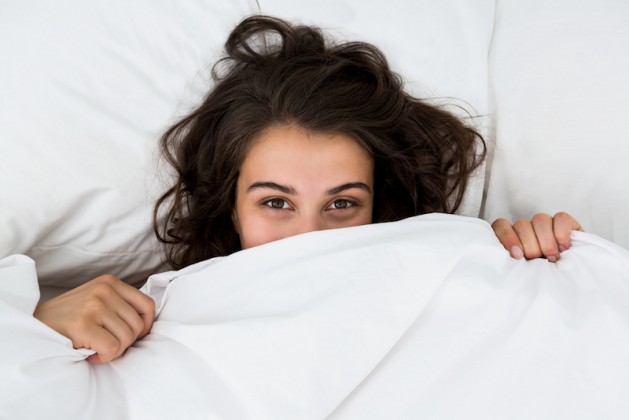
I was about 13 years old when my mother told me that I’d never be skinny. Needless to say, I did not take it well.
In a world awash with media that says if you only try hard enough you’ll be thin, fit, and beautiful, it sounds like she was cruel to me at that young age, though she was just giving me a dose of reality in the hopes that I’d stop making my parents and myself miserable with my complaining. I’m not built like a runway model. That’s the facts.
So why did I freak out? Because thinness is equated with beauty which is in turn equated with worth and goodness. This isn’t an outdated idea. Think of all the people whose knee-jerk method of critiquing the Women’s March on Washington was calling the marchers fat and ugly as if it proves something.
I do want to note that as far as societal pressure goes, I had it easy. No one told me I deserved to die because of my weight or made fun of me at a gym or made me feel like amputating a healthy organ was my best and only option. But that I could be considered thin in some circles and still feel the pressure to hate myself beautiful is telling.
So, how does one go from an anxious, self-conscious 13-year-old to accepting one’s body, flaws and all? I wish I could give you an inspiring narrative arc that builds block by block into a neat staircase leading towards body acceptance, an easy template that anyone can use.
But in all truthfulness, it was more of a rollercoaster.
High point: Leaving my hometown and meeting new people who found me interesting and attractive. This could just be a part of maturing, and outside validation isn’t everything, but every little bit helps.
Low point: I lost weight in college by eating when I was hungry, sleeping when I was tired, and walking to classes, and initially I was excited. Then friends and family took up the chorus to tell me how awful I looked before with phrases like, “You look like a completely different person,” “You needed to lose weight,” and, “I can really see where you lost weight on your arms and legs.” While everyone decided I looked better, my anxiety around my looks increased because of all the commentary.
High point: In college I’m formally introduced to feminism and the critical reading of advertising and other messages about what women are “supposed” to be like. I finally found some tools for combating the messages I’d taken in since I was a kid, but I still had trouble using them.
High point: Seeing other women naked in non-sexual situations. It came up in an all-girls dorm where no one had control of the thermostat, in saunas, and even a strange but delightful activity where women painted with their boobs. Normal became more established in reality and less by over-polished representations.
Low point: It sounds so stupid, but I gained five pounds studying abroad in Paris. (French women do get fat, dear reader, especially poor ones. Paris is expensive, and crappy food is cheap.) I was convinced that I had become a hideous monster over five measly pounds. After all, what if I went back to looking like that person everyone decided wasn’t good enough?
Low point: I was working as a temp and my contract ended due to company restructuring. My weight and looks felt like something I could control. (Surprise! Mom was right.) I was so angry at my body because its failure to change felt like a reflection of my worth.
High point: I continued reading feminist literature like Unbearable Weight by Susan Bordo about how beauty ideals change with the political climate and valuing thinness isn’t a neutral or objective position. I stumble onto body positivity websites and blogs. If you get nothing out of this piece but this, read the Dances with Fat blog as an introduction to body acceptance.
Low point: My friends, family, and co-workers complimented my weight loss before my wedding, which both flattered me and made me uneasy and self-conscious. I felt the pressure to be a beautiful bride and was terrified that my wedding guests would laugh at me for trying and failing. (They’re lovely people. They wouldn’t actually do that.)
High point: More feminist reading, including The Beauty Myth by Naomi Wolf. I started to examine why beauty would be considered a worthwhile goal for me at all.
Low point: I hate my job and start drinking up to three glasses of wine a night and ordering delivery to manage my stress. I start to hate my body again not because I gained weight, which I did, but because it was natural for me to blame my looks, which were supposedly under my control, for unhappiness.
Lowest point: I tried making myself throw up, just once. All it did was make my mouth taste gross and make me examine my toilet too closely. I would never recommend it.
High point: I hired a personal trainer specifically to address stress. I told him that weight loss was not a goal, and he took it to heart. I did a lot of weight lifting and was chided for not eating enough prior to working out. I gained more weight and my butt became too big for my work slacks. It was awesome.
High point: While on a treadmill I achieved a transcendent runner’s high, like just short of seeing rainbows and gaining enlightenment high. It occurred to me that my body had a way of loving me even when I said I hate it by giving me this wonderful feeling, and, of course, that my body and me are one and the same. Through high logic, I feel a rush of self-love.
High point: I started seeing a therapist to address my anxieties and goals, leading me to quit my stable, but an awful fit for me, job. By not projecting my insecurities and worries onto my looks, I found that I have no real desire to change them.
Whew! That’s a lot. But does what it mean for you to read my overshare?
First of all, there are stories that have higher highs and lower lows. Despite my lowest point, I don’t think anyone would diagnose me with any disorder. By all accounts my attitude toward my body, even when I hated it, would be considered boringly normal. That should freak you out a little.
Also strange is that my feelings about my body did not actually have to do with health or looks. They had to do with the idea that your body is not a part of yourself, but a method of displaying success for social approval. It f*cked with my head when I got that vocal social approval. You can win the looks game and still feel terrible.
If you struggle with poor body image, unlearning all the scripts you’ve been bombarded with will take time. While I was perfectly happy to not judge others by my horrible criteria, I wasn’t willing to give myself the same benefit for years. But there are ways to get out of the habit.
Working out for enjoyment and satisfaction can help you reconnect with your body as a part of yourself instead of viewing it as a social commodity. In my case, feminism provided insight into where my negative ideas came from and why. And yeah, seeing a therapist who helped me manage the root of my frustration instead of buying into the message of “Become thin/beautiful and have your life turn into magic!” sure helped a lot.
These methods may not work for you, and you will encounter resistance because everyone will still encourage you to “improve” your looks or talk about diets or bash other people who don’t meet their stupid beauty standards, even you. But if you have poor body image, I hope that seeing body acceptance as healthy and possible will spur you on your own rocky journey.



